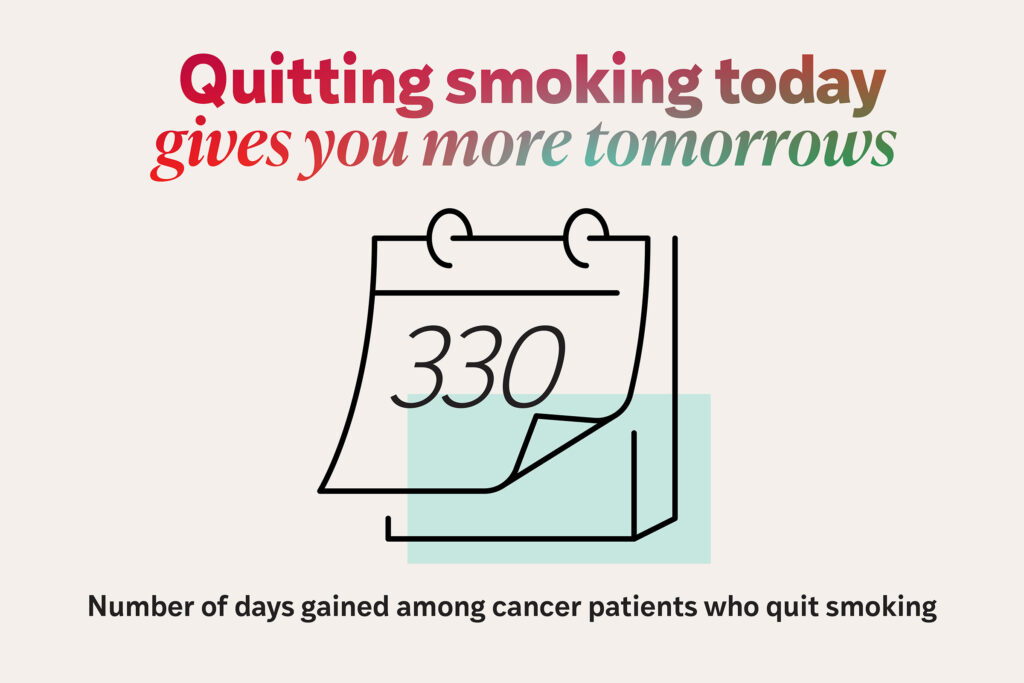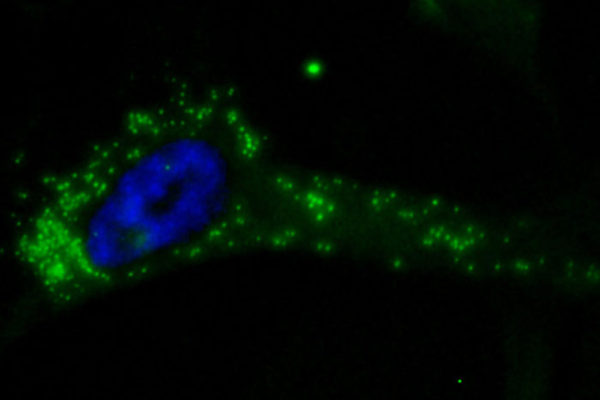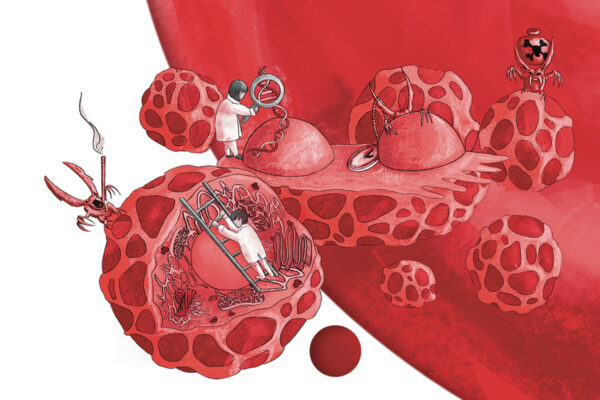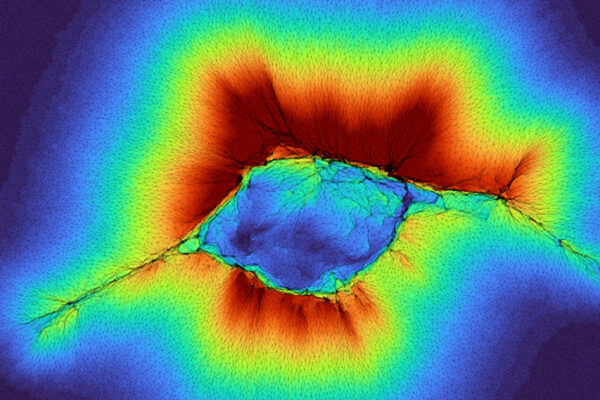Around 25% of people with cancer in the U.S. are active smokers when they are diagnosed, and studies have found that many of them continue to smoke during treatment. This may be due in part to a common misconception — even among some doctors — that quitting won’t help much if a person already has cancer, particularly if it’s at an advanced stage.
Now, a study led by Li-Shiun Chen, MD, a professor of psychiatry at Washington University School of Medicine in St. Louis, shows that kicking the habit after starting cancer treatment is well worth it — and what’s more, smokers with the most advanced cancers glean the biggest benefit from quitting, more than doubling their survival time.
Patients in Chen’s study had help quitting through a smoking cessation program developed and administered at Siteman Cancer Center, based at Barnes-Jewish Hospital and WashU Medicine. The program offers a unique approach to cancer care by integrating smoking cessation interventions into patients’ cancer treatment plans. Delivering all treatment on-site eliminates hurdles involving time and transportation.
Chen’s findings were published Oct. 9 in the Journal of the National Comprehensive Cancer Network.
“WashU Medicine and Siteman are the leading frontier to ensure every cancer patient is offered tobacco treatment as part of their cancer care, using a novel, informatics-enabled, point-of-care model,” said Chen, who also directs the Tobacco Treatment Program at Siteman. “By showing that it’s never too late, even for the sickest patients, we hope to inspire all cancer centers and patients to include smoking cessation support as part of routine cancer care to improve survival.”
In the study, Chen and her collaborators followed 13,282 adults who received outpatient oncology care during a six-month period at Siteman. The team recorded each participant’s smoking status at their initial visit, then tracked cessation rates over the next six months along with survival over the next two years. Of 1,725 patients who reported at their first visit that they smoked, about one-fifth of them quit within the following six months.
Across all cancer types and stages, the researchers found that the probability of survival two years after patients’ initial oncology visit was 74% among those who continued smoking, versus 85% among those who quit. This benefit was driven mainly by patients with late-stage cancers (stage 3 or 4), among whom quitting was associated with a bigger increase in survival rate over this time period compared to people with early-stage cancer (stage 1 or 2).
Examining the results another way, the researchers found that for patients with stage 3 or 4 cancer who kept smoking, 85% were alive at 210 days. In comparison, of those who quit, 85% were still alive at 540 days. That’s nearly a year of additional days of life.
“Advanced-stage cancer patients often feel hopeless,” said first author Steven Tohmasi, MD, a resident in the Department of Surgery at WashU Medicine. “If they feel they have limited time, some doctors might not actively encourage patients to quit smoking or may prioritize patient comfort over cessation efforts. But when we’ve shown patients our data, it gives them hope and motivates them to want to quit. An extra year of life is a long time for patients who may have been told they only had months to live.”

The fourth pillar of treatment
Siteman’s team-based approach to tobacco care was developed as part of the National Cancer Institute (NCI)’s Cancer Center Cessation Initiative, which is focused on helping NCI-designated cancer centers incorporate evidence-based tobacco treatments into clinical care. The goal, in essence, is making smoking cessation “the fourth pillar of cancer treatment, alongside surgery, radiation and chemotherapy,” Tohmasi explained.
Siteman’s smoking-cessation program uses electronic health records to identify patients who smoke and gauge their interest in quitting. A nurse or medical assistant then offers assistance with quitting during their visit, such as access to phone- or text-based counseling, an app designed to help them quit, referral to a smoking-cessation group, and medications to support quitting.
In earlier research, Chen showed that the program helped more cancer patients quit successfully than previous methods had. In a related study, Chen also found evidence that quitting smoking could improve treatment efficacy and boost survival rates. But Chen said she faced some professional pushback at the idea of following that research thread further.
“People told us that we were wasting time — that we should work on smoking cessation in patients who aren’t already so sick,” Chen said. “Smoking is also highly addictive and it’s hard for people to quit. So we needed to be sure the effort would be worthwhile for patients and for their care teams.”
In the new study, Chen and Tohmasi analyzed the outcomes of all Siteman patients seen over the designated six-month period. The group included patients with all kinds of cancers at all stages who came from across the St. Louis metro area and southern Illinois, representing an array of demographic backgrounds. This differentiated the study from some previous research on smoking cessation in cancer patients that focused only on certain cancer types and never examined the survival benefit of quitting in people with advanced cancers.
By linking cancer survival to tobacco use for all cancer patients across severity levels and including patients who were never, former or current smokers, Chen and Tohmasi were able to gain a broad perspective on smoking cessation and the important role of Siteman’s integrated treatment program.
The program has been scaled and adapted for several of Siteman’s partner health centers. Based on its success, the model was implemented in 14 clinics affiliated with Siteman Cancer Center across eastern Missouri and southern Illinois starting in July. Nationally, the program has been disseminated through EpicShare, where it continues to prove both cost-effective and successful in supporting smoking cessation.
Starting in September with the support of a $1.6 million NCI grant, Chen and colleagues Alex Ramsey, PhD, an associate professor of psychiatry at WashU Medicine, and Ross Brownson, PhD, the Steven H. and Susan U. Lipstein Distinguished Professor in WashU School of Public Health, launched a pragmatic clinical trial on tobacco treatment, including smoking cessation. The trial aims to compare how different care models can scale and sustain tobacco use treatment among cancer survivors in different care settings serving cancer survivors across eight states. The trial will be conducted with research partners at four regional hubs: WashU Medicine, the University of Pennsylvania, Vanderbilt University Medical Center and the St. Louis VA Medical Center.
Tohmasi S, Baker TB, Heiden BT, Chen J, Smock N, Craig EJ, Griffith NB, Reddy J, Colditz GA, Govindan R, Beirut LJ, Chen L-S. Smoking cessation and mortality risk in cancer Survivorship: Real-world Data From a National Cancer Institute-Designated Cancer Center. J Natl Compr Canc Netw 2025;23(10):e257059. DOI: 10.6004/jnccn.2025.7059.
The authors have disclosed that they have not received any financial consideration from any person or organization to support the preparation, analysis, results, or discussion of this article.
This work was supported in part by the National Cancer Institute (T32CA009621), National Institutes of Health (R01DA056050, R01CA268030, P30CA091842-19S5, P30CA091842-16S2, and P50CA244431), the US Department of Defense Lung Cancer Research Program (LC230570), and the Alvin J. Siteman Cancer Center Siteman Investment Program (supported by 5129–Barnard Trust and The Foundation of Barnes-Jewish Hospital).
The funders had no role in the design and conduct of the study; collection, management, analysis, and interpretation of the data; preparation, review, or approval of the manuscript; and decision to submit the manuscript for publication. This content is solely the responsibility of the authors and does not reflect the official views of the National Institutes of Health or the other funding sources.
About Washington University School of Medicine
WashU Medicine is a global leader in academic medicine, including biomedical research, patient care and educational programs with more than 3,000 faculty. Its National Institutes of Health (NIH) research funding portfolio is the second largest among U.S. medical schools and has grown 83% since 2016. Together with institutional investment, WashU Medicine commits well over $1 billion annually to basic and clinical research innovation and training. Its faculty practice is consistently among the top five in the country, with more than 2,000 faculty physicians practicing at 130 locations. WashU Medicine physicians exclusively staff Barnes-Jewish and St. Louis Children’s hospitals — the academic hospitals of BJC HealthCare — and Siteman Cancer Center, a partnership between BJC HealthCare and WashU Medicine and the only National Cancer Institute-designated comprehensive cancer center in Missouri. WashU Medicine physicians also treat patients at BJC’s community hospitals in our region. With a storied history in MD/PhD training, WashU Medicine recently dedicated $100 million to scholarships and curriculum renewal for its medical students, and is home to top-notch training programs in every medical subspecialty as well as physical therapy, occupational therapy, and audiology and communications sciences.
Originally published on the WashU Medicine website



